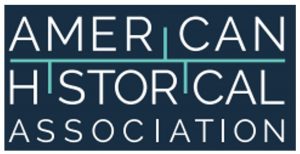ECSU History Program Awarded Pandemic Recovery Grant

The Elizabeth City State University (ECSU) History Program received a $20,200 grant from the American Historical Association (AHA) to grow the study of history and the humanities at the university. ECSU’s History Department will use the award to foster innovative teaching, research, and recruiting practices, as well as bring scholars, writers and artists to campus to interact with university and community members. The department will also purchase equipment for a digital history studio which will allow students and faculty to develop projects that can be shared via social media and other channels.
ECSU’s award comes from a special AHA grant program called Sustain and Advance the Work of Historical Organizations Program (SHARP). AHA was award $2.5 million from the National Endowment for the Humanities through the American Rescue Plan Act of 2021, and in turn, SHARP provided grants ranging from $12,000 to $75,000 to 50 institutions adversely affected by the COVID-19 pandemic.
Dr. Charles Reed, History and Social Sciences professor, applied for the grant and hopes these efforts will result in increased enrollment in the History program and garner additional support for ECSU’s humanities programs. “These funds will allow us to expand our efforts in preparing and training our students for a wide variety of careers that bring together historical research and cutting-edge technologies, creating a bridge between history, the humanities, and STEM fields.”
The program also hopes the planned guest speakers, workshops, and projects will aid in its ongoing community history efforts. History professor Dr. Melissa Stuckey, who is spearheading classroom project-based research about Elizabeth City’s African American community believes, “the grant will allow us to continue to engage the university and the community in the work of researching, documenting, preserving, and interpreting the rich histories of ECSU, Elizabeth City, and northeastern North Carolina.”
According to Social Sciences Department chair Dr. Chyna Crawford, “Over the past five years, the History program has done an excellent job at revising its curricula and creating student-centered programming. This grant award continues that great work and provides a dedicated space to engage students and continue to foster their tight-knit community.”
SHARP awardees included site-based organizations, membership associations, and history departments at Historically Black Colleges and Universities (HBCUs). Grant recipients will implement short-term projects that explore new ideas or build on experiments initiated during the pandemic—from online programming or publications to using new technologies or expanding audiences and accessibility. To see the full list of SHARP grant recipients, visit the SHARP grant announcement webpage.
_________________________________________________
ECSU’s History Program
 The History program at ECSU offers a major in History with concentrations in Race, Gender, & Ethnicity Studies and Digital and Public History, as well as a minor in Black/Africana Studies. A History degree was one of the first degrees offered when ECSU transitioned from a normal (teaching) school to a degree-granting institution of higher learning.
The History program at ECSU offers a major in History with concentrations in Race, Gender, & Ethnicity Studies and Digital and Public History, as well as a minor in Black/Africana Studies. A History degree was one of the first degrees offered when ECSU transitioned from a normal (teaching) school to a degree-granting institution of higher learning.
In the spirit of the school’s founding purpose, the History program has produced many of the region’s Social Studies teachers over the years, and has effectively prepared student-scholars for careers in higher education, business, government, politics, and other fields. The program has also developed relationships and partnerships with stakeholders across the state and is leading a project to transform the campus’ historic Rosenwald School into a regional history and heritage institute.
 About the American Historical Association
About the American Historical Association
Founded in 1884 and incorporated by Congress in 1889 for the promotion of historical studies, the American Historical Association provides leadership for the discipline and promotes the critical role of historical thinking in public life. The Association defends academic freedom, develops professional standards, supports innovative scholarship and teaching, and helps to sustain and enhance the work of historians. As the largest membership association of professional historians in the world (nearly 12,000 members), the AHA serves historians in a wide variety of professions and represents every historical era and geographical area.
About the National Endowment for the Humanities
 Created in 1965 as an independent federal agency, the National Endowment for the Humanities is one of the largest funders of humanities programs in the U.S. It supports research, education, preservation, and public programs in the humanities, and its grants are typically awarded to cultural institutions, such as museums, archives, libraries, colleges, universities, public television, and radio stations, and to individual scholars.
Created in 1965 as an independent federal agency, the National Endowment for the Humanities is one of the largest funders of humanities programs in the U.S. It supports research, education, preservation, and public programs in the humanities, and its grants are typically awarded to cultural institutions, such as museums, archives, libraries, colleges, universities, public television, and radio stations, and to individual scholars.


